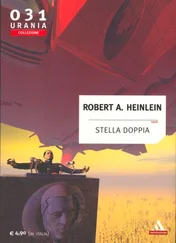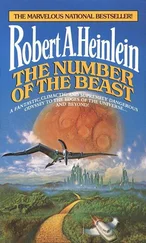Robert Heinlein - Expanded Universe
Здесь есть возможность читать онлайн «Robert Heinlein - Expanded Universe» весь текст электронной книги совершенно бесплатно (целиком полную версию без сокращений). В некоторых случаях можно слушать аудио, скачать через торрент в формате fb2 и присутствует краткое содержание. Жанр: Фантастика и фэнтези, на английском языке. Описание произведения, (предисловие) а так же отзывы посетителей доступны на портале библиотеки ЛибКат.
- Название:Expanded Universe
- Автор:
- Жанр:
- Год:неизвестен
- ISBN:нет данных
- Рейтинг книги:4 / 5. Голосов: 1
-
Избранное:Добавить в избранное
- Отзывы:
-
Ваша оценка:
- 80
- 1
- 2
- 3
- 4
- 5
Expanded Universe: краткое содержание, описание и аннотация
Предлагаем к чтению аннотацию, описание, краткое содержание или предисловие (зависит от того, что написал сам автор книги «Expanded Universe»). Если вы не нашли необходимую информацию о книге — напишите в комментариях, мы постараемся отыскать её.
Expanded Universe — читать онлайн бесплатно полную книгу (весь текст) целиком
Ниже представлен текст книги, разбитый по страницам. Система сохранения места последней прочитанной страницы, позволяет с удобством читать онлайн бесплатно книгу «Expanded Universe», без необходимости каждый раз заново искать на чём Вы остановились. Поставьте закладку, и сможете в любой момент перейти на страницу, на которой закончили чтение.
Интервал:
Закладка:
If this pushes small private planes onto separate and smaller fields, so be it. Bicycles do not belong on freeways. I hate to say that, as there is nothing more fun than a light sports plane.
(Nothing that is not alive, I mean. Vive la difference!)
(On air traffic control I speak with a modicum of authority. I returned to the aircraft industry for a short time in 1948 to research this subject, then wrote an article aimed at the slicks: THE BILLION - DOLLAR EYE. I missed; it is still unpublished.)
18. 1950 Fish and yeast will become our principal sources of proteins. Beef will be a luxury; lamb and mutton will disappear.
1965 I'll hedge number eighteen a little. Hunger is not now a problem in the USA and need not be in the year 2000 - but hunger is a world problem and would at once become an acute problem for us if we were conquered.. . a distinct possibility by 2000. Between our present status and that of subjugation lies a whole spectrum of political and economic possible shapes to the future under which we would share the worldwide hunger to a greater or lesser extent. And the problem grows. We can expect to have to feed around half a billion Americans circa year 2000 - our present huge surpluses would then represent acute shortages even if we never shipped a ton of wheat to India.
1980 It would now appear that the USA population in 2000 A.D. will be about 270,000,000 instead of 500,000,000. I have been collecting clippings on demography for forty years; all that the projections have in common is that all of them are wrong. Even that figure of 270,000,000 may be too high; today the only reason our population continues to increase is that we oldsters are living longer; our current birthrate is not sufficient even to replace the parent generation.
19. 1950 Mankind will not destroy itself, nor will "Civilization" be destroyed.
1965 I stand by prediction number nineteen.
1980 I still stand by prediction number nineteen. There will be wars and we will be in some of them - and some may involve atomic weapons. But there will not be that all - destroying nuclear holocaust that forms the background of so many SF stories. There are three reasons for this: The United States, the Soviet Union, and the People's Republic of China.
Why? Because the three strongest countries in the world (while mutually detesting each the other two) have nothing to gain and everything to lose in an all-out swapping of H - bombs. Because Kremlin bosses are not idiots and neither are those in Beijing (Peiping)(Peking).
If another country - say Israel, India, or the South African Republic - gets desperate and tosses an A - or H - bomb, that country is likely to receive three phone calls simultaneously, one from each of the Big Three:
"You have exactly three minutes to back down. Then we destroy you."
After World War II I never expected that our safety would ever depend on a massive split in Communist International - but that is exactly what has happened.
1950 Here are things we won't get soon, if ever:
Travel through time.
Travel faster than the speed of light.
"Radio" transmission of matter.
Manlike robots with manlike reactions.
Laboratory creation of life.
Real understanding of what "thought" is and how it is related to matter.
Scientific proof of personal survival after death.
Nor a permanent end to war. (I don't like that prediction any better than you do.)
1950 Prediction of gadgets is a parlor trick anyone can learn; but only a fool would attempt to predict details of future history (except as fiction, so labeled); there are too many unknowns and no techniques for integrating them even if they were known.
Even to make predictions about overall trends in technology is now most difficult. In fields where before World War II there was one man working in public, there are now ten, or a hundred, working in secret. There may be six men in the country who have a clear picture of what is going on in science today. There may not be even one.
This is in itself a trend. Many leading scientists consider it a factor as disabling to us as the nonsense of Lysenkoism is to Russian technology. Nevertheless there are clear - cut trends which are certain to make this coming era enormously more productive and interesting than the frantic one we have just passed through. Among them are:
Cybernetics: The study of communication and control of mechanisms and organisms. This includes the wonderful field of mechanical and electronic "brains" - but is not limited to it. (These "brains" are a factor in themselves that will speed up technical progress the way a war does.)
Semantics: A field which seems concerned only with definitions of words. It is not; it is a frontal attack on epistemology - that is to say, how we know what we know, a subject formerly belonging to long - haired philosophers.
New tools of mathematics and logic, such as calculus of statement, Boolean logic, morphological analysis, generalized symbology, newly invented mathematics of every sort - there is not space even to name these enormous fields, but they offer us hope in every field - medicine, social relations, biology, economics, anything.
Biochemistry: Research into the nature of protoplasm, into enzyme chemistry, viruses, etc., give hope not only that we may conquer disease, but that we may someday understand the mechanisms of life itself. Through this, and with the aid of cybernetic machines and radioactive isotopes, we may eventually acquire a rigor of chemistry. Chemistry is not a discipline today; it is a jungle. We know that chemical behavior depends on the number of orbital electrons in an atom and that physical and chemical properties follow the pattern called the Periodic Table. We don't know much else, save by cut - and - try, despite the great size and importance of the chemical industry. When chemistry becomes a discipline, mathematical chemists will design new materials, predict their properties, and tell engineers how to make them - without ever entering a laboratory. We've got a long way to go on that one!
Nucleonics: We have yet to find out what makes the atom tick. Atomic power? - yes, we'll have it, in convenient packages - when we understand the nucleus. The field of radioisotopes alone is larger than was the entire known body of science in 1900. Before we are through with these problems, we may find out how the universe is shaped and why. Not to mention enormous unknown vistas best represented by ?????
Some physicists are now using two time scales, the T - scale, and the tau - scale. Three billion years on one scale can equal an incredibly split second on the other scale - and yet both apply to you and your kitchen stove. Of such anarchy is our present state in physics.
For such reasons we must insist that the Age of Science has not yet opened.
(Still 1950) The greatest crisis facing us is not Russia, not the Atom bomb, not corruption in government, not encroaching hunger, not the morals of young. It is a crisis in the organization and accessibility of human knowledge. We own an enormous "encyclopedia" - which isn't even arranged alphabetically. Our "file cards" are spilled on the floor, nor were they ever in order. The answers we want may be buried somewhere in the heap, but it might take a lifetime to locate two already known facts, place them side by side and derive a third fact, the one we urgently need.
Call it the Crisis of the Librarian.
We need a new "specialist" who is not a specialist, but a synthesist. We need a new science to be the perfect secretary to all other sciences.
But we are not likely to get either one in a hurry and we have a powerful lot of grief before us in the meantime.
Fortunetellers can always be sure of repeat customers by predicting what the customer wants to hear... it matters not whether the prediction comes true. Contrariwise, the weatherman is often blamed for bad weather.
Читать дальшеИнтервал:
Закладка:
Похожие книги на «Expanded Universe»
Представляем Вашему вниманию похожие книги на «Expanded Universe» списком для выбора. Мы отобрали схожую по названию и смыслу литературу в надежде предоставить читателям больше вариантов отыскать новые, интересные, ещё непрочитанные произведения.
Обсуждение, отзывы о книге «Expanded Universe» и просто собственные мнения читателей. Оставьте ваши комментарии, напишите, что Вы думаете о произведении, его смысле или главных героях. Укажите что конкретно понравилось, а что нет, и почему Вы так считаете.











